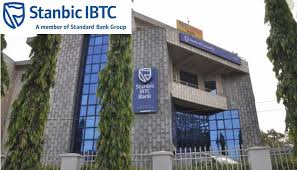
By Habibat Aliu
Experts who gathered at a webinar jointly organised by Coronation Insurance Plc and Coronation Life Assurance Limited have called on Small and Medium Enterprises (SMEs) to embrace insurance as a risk to mitigate instruments for sustainable business growth.
For this, Coronation Insurance is working with Access Bank, for example, to develop Business Protection Bundles including basic fire, flood, and limited liability cover as well as limited employee life insurance – providing three years’ annual income – to enable Nigerian SMEs to affordably cover the basics of successfully operating their businesses.
Experts said Nigeria needed to look to the experience of other markets that had developed successful SME insurance ecosystems where the government coordinated policy and legislation in tandem with the insurance industry and large and small businesses.
They believe that the enforcement of compulsory insurance will help deepen insurance even as they called on embedding insurance in the price of products purchased, as a painless method to spread the use of insurance and address trust deficits.
In his opening remarks during the webinar with the theme “Importance of Insurance for SMEs: Insurance Requirement for a Growing Business,” the Managing Director, Coronation Insurance Plc, Olamide Olajolo, said the webinar “is part of the company’s thought leadership initiatives designed to provide relevant insights for both corporate and individual clients across various sectors of the economy.”
Speaking on why insurance is important to all and sundry including SMEs, he noted that the past three years had been marked by uncertainties and the uncertainties of the business environment have underlined the importance of insurance protection for business risks at the adequate level to help businesses to grow.
Also speaking at the virtual seminar which was widely attended by a host of participants from the insurance sector and Coronation small business clients Gbenga Ismail, Vice President, Lagos Chamber of Commerce and Industry (LCCI), highlighted the significance of Nigeria’s 40 million SMEs for the growth, development and future security of the Nigerian economy.
In addition to noting that Nigeria had lost two million SMEs to the Covid-19 pandemic, Ismail also reported that most new SMEs struggled to achieve scale quickly enough to realise the opportunities for which they were created just as he said that Irregular and delayed payments were also a critical hurdle.
The result, according to him, was that most new SMEs failed within 18 months of start-up.
“Despite 90% of SMEs currently not paying tax, SMEs represented a huge potential to drive economic inclusion, broaden prosperity, and power the future growth of the Nigerian economy. As such, Ismail argued that it was critical to provide SMEs with the support to ensure survival in the first critical years.
“Insurance represented a key financial cushion to manage shocks and build financial resilience in the first years of SME growth. With only 0.5% of Nigerian SMEs insured, compare with 54% globally, the country should focus squarely on developing an insurance environment more accommodating of and appealing to SMEs.” Ismail explained.
With this challenge in mind an expert panel, consisting of Adebowale Adesona, Executive Director, Technical, Coronation Life Assurance Ltd., Louis Alozie, Country Manager, Wordplay, and Ayo Olojede, Head of Emerging Business, Africa Access Bank Plc, was expertly moderated by Wole Famurewa, CNBC’s West Africa Markets Editor.
The experts established that “There was no doubt that Nigerian SMEs faced risk – damage to business property and vehicles, legal liability and general product, key persons and goods-in-transit risks cost SMEs dearly.”
They believe that “just insuring a few of these basic risks could save Nigerian SMEs billion annually and improve survival rates significantly.”
The experts advised that “Since not all SMEs were exposed to all risks, however, it was important for SMEs to consult insurance professionals to identify only those risks that were critical to the survival of their business. Insuring only one to two key risks didn’t cost a lot but could make a significant contribution to survival and growth rates.”
It would also help SMEs to understand the difference between external risks, like flood and fire, and internal risks, usually arising from the people SMEs employed or the systems they used.
They cited technology as a “great leveller for SMEs, helping them compete effectively with the big guys, it also exposed them to cybercrime and other information security risks.”
The experts said that knowing your customer processes (KYC) was also important in helping SMEs identify and mitigate client risk, noting that seeking the right advice on people processes and systems could also help manage fraud or employee risk – often by simply training staff to correctly understand and observe basic internet security protocol.
“While providing staff basic life or income cover, for example, sounded expensive this was relatively cheap, improved trust and performance, and prevented SMEs from being saddled with unexpected support obligations in the event of the death or injury of an employee.
From an SME perspective, the panel concurred that “insurance was an investment in yourself. By spending a little money each month, even a small farmer could mitigate risk, ensuring that he was placed in the position that he or she was in before the fire, gale, or flood. Being able to insulate yourself from business-destroying events that routinely wipe out SMEs was a critical first step in Nigeria building a deeper and more effective insurance culture able to support broader and higher levels of economic growth.






